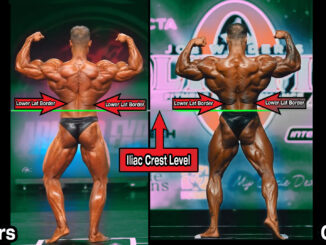
Jurassic Gorilla https://jurassicgorilla.com
Dr. Melody Ding’s study conducted at the University of Sydney delved into the intricate relationship between lifestyle behaviors and their collective impact on health. What set this research apart from its predecessors was its holistic approach, which considered lifestyle factors that encompassed not only the usual suspects like diet, smoking, drinking, and physical inactivity but also the relatively underexplored territories of prolonged sitting and excessive sleep.
While it has long been established that poor diet, smoking, excessive alcohol consumption, and a sedentary lifestyle can significantly harm one’s health, Ding’s study was groundbreaking for incorporating the lesser-known contributors to health issues: extended periods of sitting and excessive sleep.
Recent scientific investigations have started to unveil the intricate connections between sleep patterns and overall health. These studies have suggested that not only the duration of sleep but also the way it is intertwined with the hours spent sitting may have an impact on one’s well-being. One noteworthy revelation has been the association between prolonged sitting and the potential damage to telomeres – the protective caps at the end of DNA strands. Telomeres play a pivotal role in cell aging, acting much like the protective tips of shoelaces.
The research, which examined a vast sample of 230,000 individuals aged 45 and older, marked a significant milestone as it became the first-ever study to scrutinize the combined effects of sleep and sitting. In essence, it ventured into uncharted territory by exploring the synergistic impact of these factors on health.
This novel approach to health assessment led to headlines that might have oversimplified the study’s findings. Some reports boldly declared that sleeping excessively is as detrimental as smoking and excessive alcohol consumption, suggesting a fourfold increase in the risk of early death for individuals sleeping more than nine hours per night. In truth, the study’s revelations were far more nuanced. It indicated that individuals who are both physically inactive and spend extended periods sitting, in addition to sleeping more than nine hours daily, are at a higher risk of experiencing health problems. In other words, excessive sleep might exacerbate the health risks for individuals who are already leading a sedentary and inactive lifestyle. It’s akin to adding another layer of inactivity on top of an already inactive existence.
The implications of this study are profound, especially in an era when significant investments are being made in anti-aging research by influential figures like Larry Page and Sergey Brin, co-founders of Google, and other wealthy individuals with a vested interest in extending their lifespans. It underscores the importance of not only embracing healthier habits such as increased physical activity, less sitting, and improved dietary choices but also refraining from smoking and excessive drinking. By adopting a comprehensive approach to health and lifestyle, individuals can increase their chances of reaping the benefits of emerging technologies that may transform the aging process. In essence, this could enable individuals to enjoy the physical vitality of a fifty-year-old even when they reach the age of ninety, providing a life that is more than just a heartbeat in a cadaver-like existence.








Be the first to comment